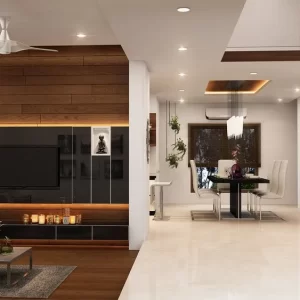Architecture has always been a reflection of human civilization’s progress and aspirations. From the majestic pyramids of Egypt to the futuristic skyscrapers of today, architects have continuously pushed the boundaries of design and functionality. In the 21st century, the challenges of urbanization, sustainability, and technology have spurred architects to develop innovative approaches that are shaping tomorrow’s cities in remarkable ways.
What is the role of architecture?
Architecture contributes to the physical, cultural, and environmental fabric of our world. It provides shelter, reflects culture, enhances functionality, and shapes our communities while addressing pressing global issues such as sustainability and inclusivity. Architecture is a multifaceted discipline that plays a crucial role in our daily lives and the future of our planet.
Adaptive Reuse
One of the most remarkable innovations in contemporary architecture is the concept of adaptive reuse. This approach involves transforming existing structures into something entirely new and unexpected. Architects are repurposing old factories, warehouses, and even historic buildings to create modern, functional spaces. The advantages are numerous it preserves cultural heritage, reduces construction waste, and often results in unique, character-filled spaces. This project not only showcases the potential for transforming urban relics but also demonstrates the power of community-driven initiatives.
Sustainable Design
With increasing concerns about the environment, sustainable architecture is more critical than ever. Architects are integrating eco-friendly materials and energy-efficient design principles into their projects. This exemplifies how architects are leading the charge in creating structures that harmonize with the environment.
Biophilic Design
The concept of biophilic design involves integrating nature into the built environment. Architects are increasingly recognizing the importance of connecting people with the natural world, even in urban settings. Not only do they enhance the aesthetics of the city, but they also improve air quality and provide habitat for birds and insects. Biophilic design is a testament to the innovative ways architects are improving urban life.
Digital Technology and Parametric Design
Advancements in digital technology have given architects new tools to explore complex and intricate designs. Parametric design, in particular, has opened up exciting possibilities for creating dynamic and adaptable structures. This demonstrates how architects are using technology to achieve unparalleled levels of complexity and beauty in their creations.

Modular and Prefabricated Construction
In response to the demand for faster and more cost-effective construction, architects are turning to modular and prefabricated construction methods. These techniques involve assembling building components off-site and then transporting and fitting them together on location. This approach not only accelerates construction but also reduces waste and enhances quality control.
Smart Cities and Internet of Things (IoT)
The rise of the Internet of Things (IoT) has given architects the opportunity to create smart cities where technology and infrastructure work seamlessly together. These cities leverage data and connectivity to enhance efficiency and improve the quality of life for their inhabitants. Architects are at the forefront of designing the cities of the future, where the digital and physical worlds converge.
Inclusive and Accessible Design
Inclusivity and accessibility are no longer optional in architecture; they are essential. Architects are rethinking design to ensure that spaces are welcoming and accommodating to people of all abilities.
Cultural Sensitivity
Architecture has the power to celebrate and preserve cultural heritage. Architects are increasingly sensitive to the cultural context in which their projects exist, and they are using design to reflect local history and identity. This innovative approach acknowledges the importance of respecting and celebrating the past while shaping the future.
Innovative approaches in architecture are transforming the way we live, work, and interact with our urban environments. From adaptive reuse to sustainable design, biophilic concepts to digital technology, modular construction to smart cities, and inclusive and accessible design to cultural sensitivity, architects are at the forefront of shaping tomorrow’s cities. These creative minds are not just building structures; they are shaping the future of our world, making it more sustainable, efficient, and inclusive. As we move into an increasingly urbanized world, it’s reassuring to know that architects are leading the way in creating spaces that are not only functional but also inspiring and harmonious with the needs of the planet and its diverse inhabitants. JP Ventures is one of the best architects in Kochi. The innovative architects and their groundbreaking designs are the architects of the future, and they are truly changing the world, one building at a time.






